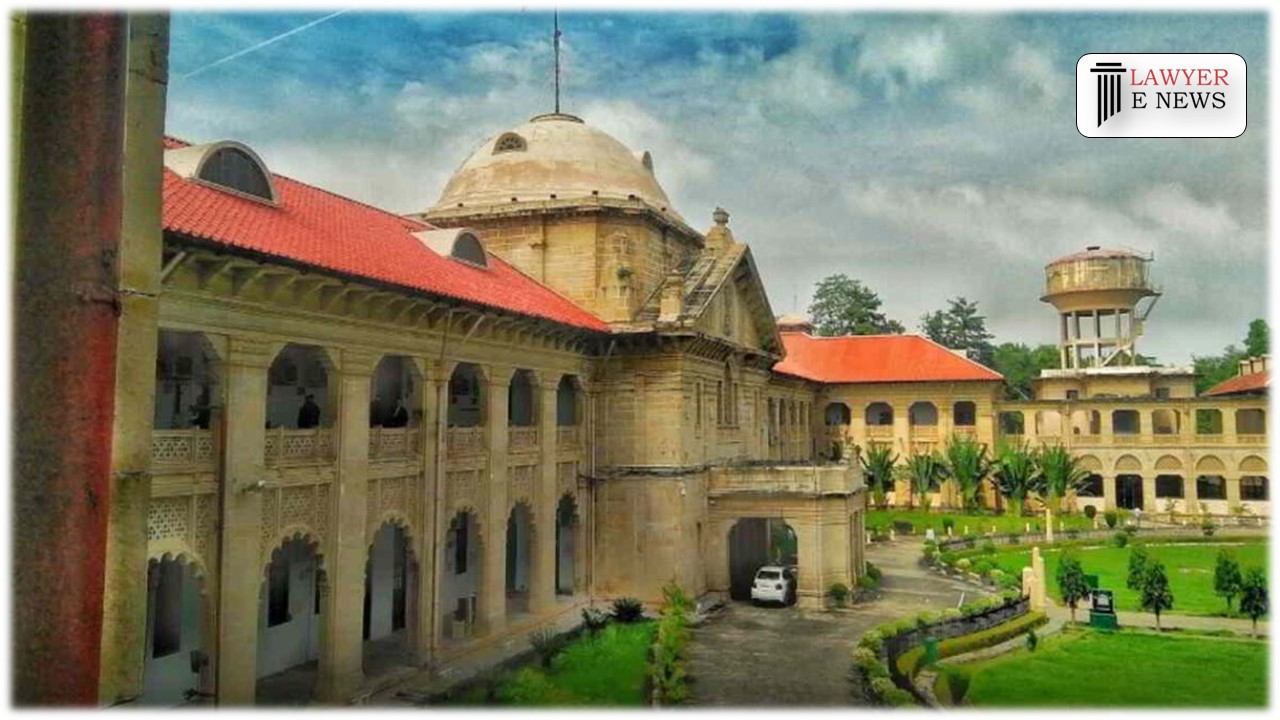-
by Admin
15 February 2026 2:36 AM



The Allahabad High Court has dismissed a writ petition filed by Kasturi Devi Sheetalaya Pvt. Ltd., challenging an order of the Debt Recovery Tribunal (DRT). The bench, led by Justice Ajit Kumar, emphasized the necessity of exhausting alternative statutory remedies provided under the Securitization and Reconstruction of Financial Assets and Enforcement of Security Interest (SARFAESI) Act, 2002, before seeking judicial review under Article 226 of the Constitution of India.
The petitioners, Kasturi Devi Sheetalaya Pvt. Ltd. And another, had filed a writ petition under Article 226 challenging an interlocutory order passed by the DRT on a miscellaneous application concerning court fees related to a Securitization Application. The respondent, represented by Bank of India, raised a preliminary objection, arguing that the petitioners had an alternative remedy available under Section 18 of the SARFAESI Act, 2002, to appeal to the Debt Recovery Appellate Tribunal (DRAT).
The court reiterated that the SARFAESI Act, 2002, provides a specific remedy for aggrieved parties to appeal to the DRAT against orders of the DRT. “The High Court should refrain from exercising its jurisdiction under Article 226 when effective alternative remedies are available under special statutes,” the bench noted, referencing the Supreme Court’s judgment in PHR Invent Educational Society v. UCO Bank.
The court discussed the limited scope for invoking Article 226 of the Constitution in matters where statutory remedies are provided. “The Supreme Court has consistently held that High Courts should exercise discretion with greater caution, care, and circumspection when statutory remedies are available under special acts such as the SARFAESI Act and the Recovery of Debts Due to Banks and Financial Institutions Act, 1993,” the court stated, citing United Bank of India v. Satyawati Tondon.
The judgment emphasized that the order passed by the DRT on a miscellaneous application regarding court fees is an interlocutory order and is appealable under Section 18 of the SARFAESI Act, 2002. The court clarified that Section 17 of the SARFAESI Act provides the DRT with the authority to entertain various applications, including those related to procedural matters like court fees. Therefore, any order, whether final or interlocutory, falls within the ambit of Section 17 and is appealable.
Justice Ajit Kumar remarked, “The High Courts should refrain from entertaining petitions under Article 226 in cases where effective statutory remedies are available unless the case falls within the exceptional circumstances outlined by the Supreme Court.”
The Allahabad High Court’s dismissal of the writ petition underscores the judiciary’s commitment to adhering to statutory remedies prescribed under special laws like the SARFAESI Act. By upholding the principle of exhausting alternative remedies, the judgment reinforces the structured legal framework for addressing disputes in financial and securitization matters. This decision is expected to guide future cases, emphasizing the importance of following the prescribed statutory procedures before seeking judicial intervention.
Date of Decision: May 28, 2024
Kasturi Devi Sheetalaya Pvt. Ltd. And Another v. The Presiding Officer Debt Recovery Tribunal and Another
